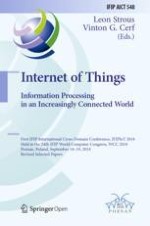1 Professionalism and IP3
1.1 The Importance of ICT Professionalism
1.2 International Professional Practice Partnership – IP3
-
encourage and support the development of both ICT practitioners and employer organizations;
-
give recognition to those who meet and maintain the required standards for knowledge, experience, competence and integrity; and
-
define international standards of professionalism in ICT.
2 Professionalism and Frameworks
2.1 e-CF Overview
2.2 SFIA Overview
2.3 e-CF in an Academic Environment
2.4 ACS Cyber-Security Framework Overview
3 Frameworks Implementation
-
Job profiles for information security 2.0, PvIBQIS
-
Supplier Management: KPN consulting IT-CMF –e-CF
-
Data Science, EU-Edison project, University of Amsterdam
-
E-CF© NEXT, profile tool/assessment of EXIN
-
Rake-Shape, blockchain f.e. UWV, LRWA.
-
Designed to provide a level of Assurance, Trust and to address the growing shortage of cyber security expertise.
-
Launched by Australian Minister Assisting the Prime Minister for Cyber Security, the Hon Dan Tehan in Canberra in Sept 2017.
-
Adopted by IFIP IP3 as a new specialism certification for member societies around the world.
-
ACS support for the implementation of the Australian International Cyber Engagement Strategy announced by the Hon Julie Bishop MP, Minister for Foreign Affairs in October 2017.
-
Raise professional standards for cyber security specialists.
-
Highlight the Duty of Care for cyber security professionals.
